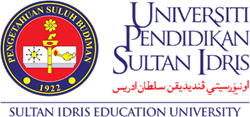Publication Ethics
Publication Ethics and Policy
Copyright Policy
This journal is licensed under a Creative Commons Attribution-NonCommercial-ShareAlike 4.0 licensed under Creative Commons Attribution-NonCommercial-ShareAlike 4.0 International License
Digital Preservation Policy
Authors retain the copyright to their articles. However, they will grant Journal of Research, Policy & Practice of Teachers & Teacher Education (JRPPTTE) a non-exclusive license to publish the article, including any abstract, visual abstract, tables, figures, data, and supplemental material (together, the "Article"), in the Journal, subject to the Terms and Conditions set out below.
Self-Achieving Policy
If the Article is accepted for publication by the Editors of the Journal, Journal of Research, Policy & Practice of Teachers & Teacher Education will publish the Article under the terms of a Creative Commons Attribution 4.0 (CC BY NC SA 4.0) License (https://creativecommons.org/licenses/by-nc-sa/4.0/).
Copyright Transfer Agreement
The author(s) grant Anyone (and retain for themselves) the right to share (copy and redistribute the material in any medium or format) or adapt (remix, transform, and build upon the material) the Article as published in the Journal provided appropriate credit is given, a link to the license is provided and details of changes made are indicated.
Code of Conduct for Authors
- Authors must follow the guidelines (template) of an article that has been set as [https://ejournal.upsi.edu.my/index.php/JRPPTTE/Author-Guideline].
- The submitted manuscript must be unpublished, and not under consideration for publication elsewhere.
- Plagiarism checks will be carried out by JRPPTTE, but authors are expected to ensure that originality and proper citation are followed.
- Excerpts from other copyrighted works included in manuscripts are the responsibility of the author.
- Copyright transfer form must be completed,
- The identity of reviewers will not be disclosed to the authors,
- The copyedited manuscript’s format should not be changed.
- Authors are given 1-2 weeks to respond to comments and revise their submissions.
Code of Conduct for Reviewers
Submitted manuscripts are first read by the Chief Editor. Once the manuscript has been assessed for suitability by the editor, it will then be double-blind peer-reviewed by independent, anonymous expert reviewers, typically by two reviewers, but sometimes more if special advice is needed (for example on statistics or a particular technique). The reviewers will make their decision regarding the manuscript based on the following possibilities:
Accept, with or without editorial revisions
Revision to manuscript before a final decision is reached
Resubmit for another round of review
Reject, and resubmit elsewhere
For more information, refer to [https://publicationethics.org/files/u7140/Peer%20review%20guidelines.pdf].
Code of Conduct for Editors
Editors are entrusted with the responsibility for all content featured in their journals and should diligently strive to accommodate the readers and authors. Editors should consistently enhance the journal’s quality and ensure the processes of publishing the journal have been done delicately. Editors must support the freedom of expression and be committed in upholding the integrity of academic records. Business needs should be precluded from compromising intellectual and ethical standards and editors should always be willing to publish corrections, clarifications, retractions, and apologies when necessary.
For more information, refer to [https://publicationethics.org/files/Code%20of%20Conduct.pdf].
Code of Conduct for Editorial Board
Editors are entrusted with the responsibility for all content featured in their journals and should diligently strive to accommodate the readers and authors. Editors should consistently enhance the journal’s quality and ensure the processes of publishing the journal have been done delicately. Editors must support the freedom of expression and be committed in upholding the integrity of academic records. Business needs should be precluded from compromising intellectual and ethical standards and editors should always be willing to publish corrections, clarifications, retractions, and apologies when necessary.
For more information, refer to [https://publicationethics.org/files/Code%20of%20Conduct.pdf].
Code of Conduct for Publisher
For more information, refer to [https://publicationethics.org/core-practices]




